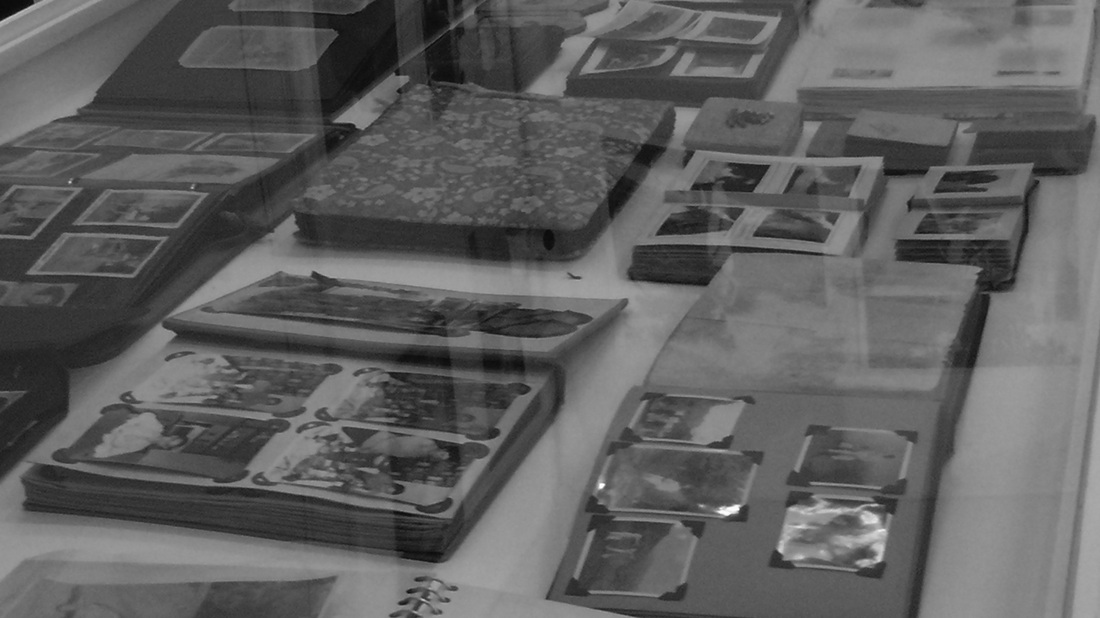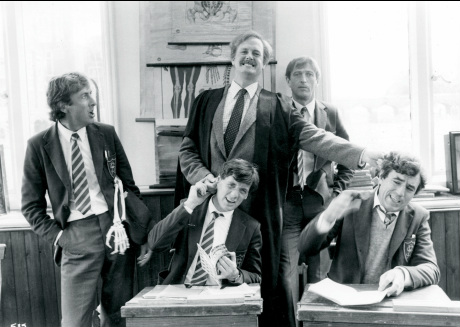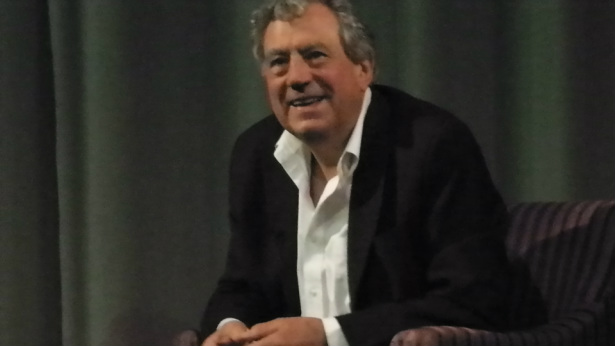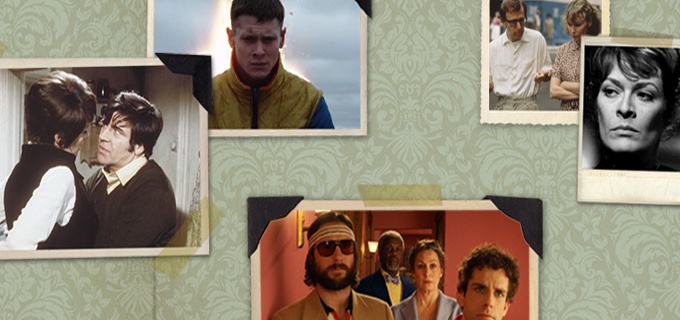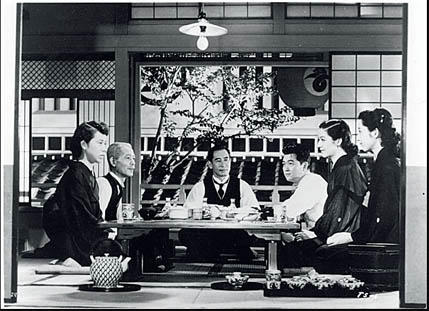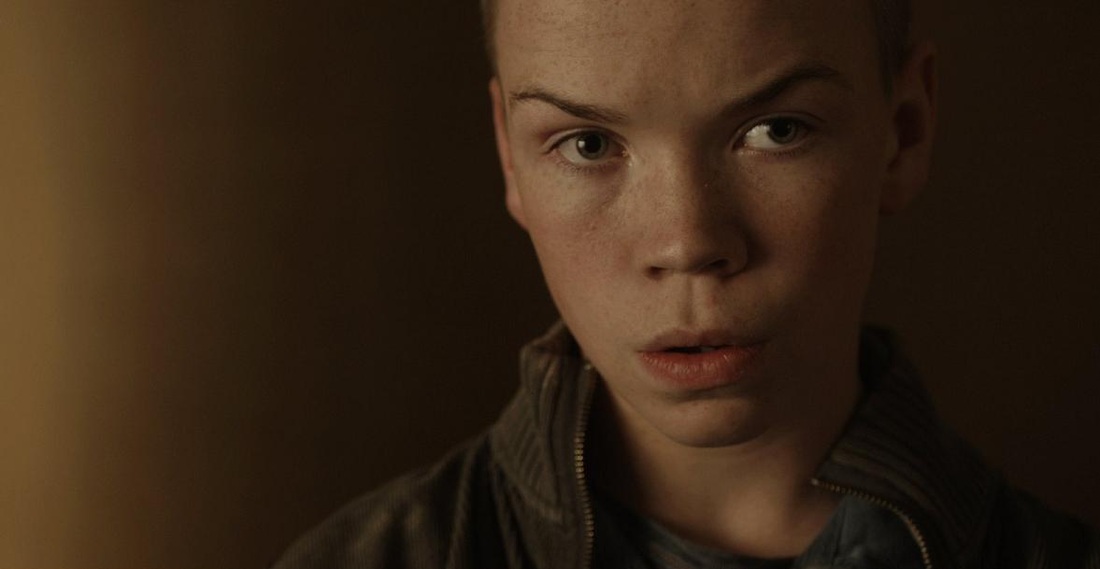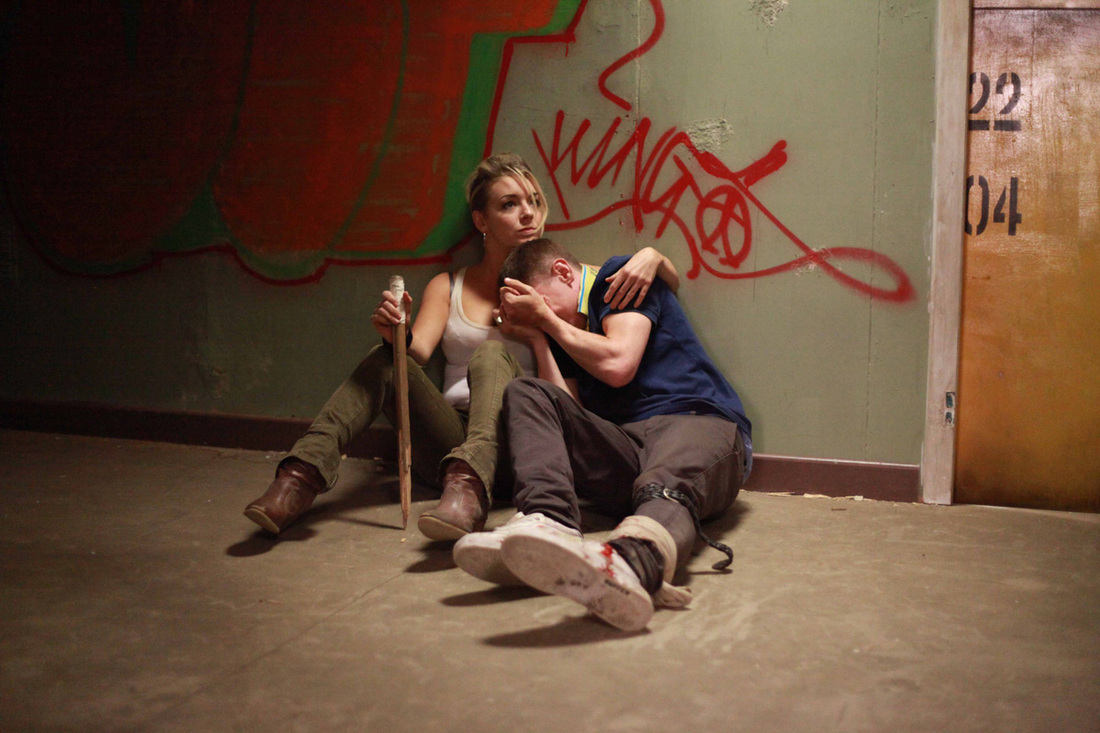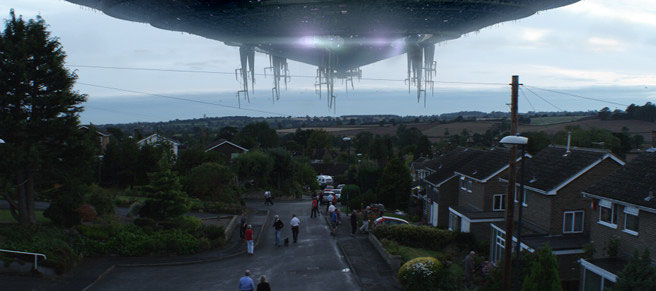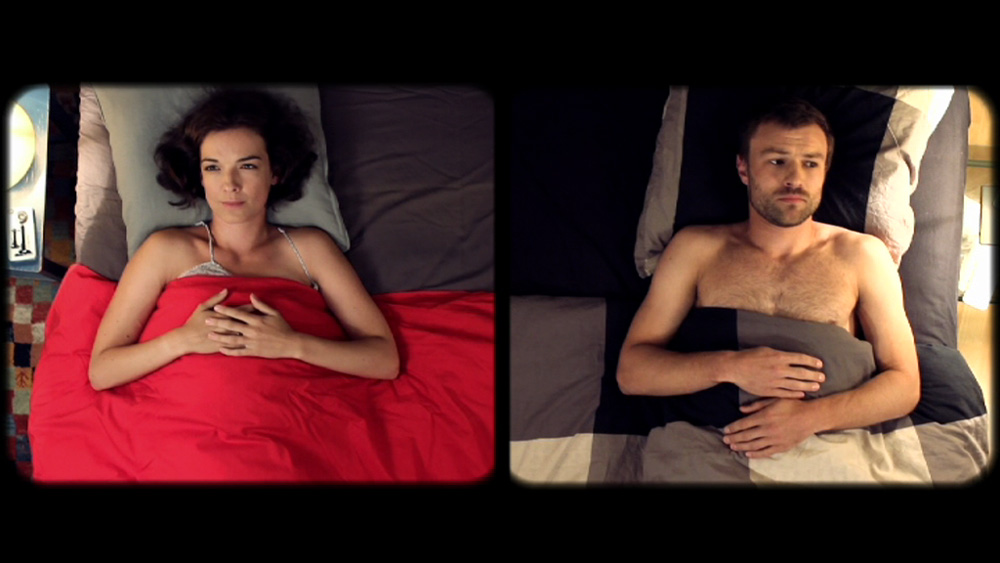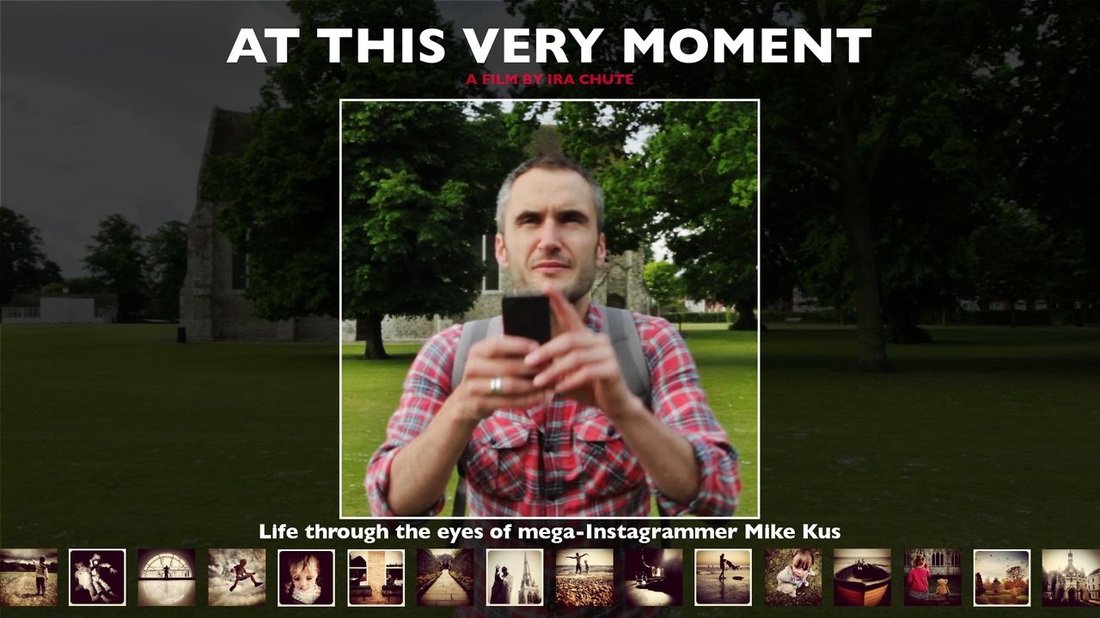|
|
Something for all the family?
2013 marked iD Fest’s fourth year. As the name suggests, the festival attempts to represent films that depict identity on screen and this year its focus was on “family”. The festival boasted a generous line-up with films ranging from Toyko Story (1953) to Clerks (1996), all connected through their representation of family on screen, whether symbolic or real. The festival’s main strength was its ability to attract filmmakers and educators of film but also a broader audience comprised of film fans and families. A Pleasure of Pythonian Proportions A major highlight of the festival was a Q&A with actor, director, writer and quirky British personality Terry Jones, famous for being a part of the Monty Python comedy team. The Q&A harked back to a time of Pythonian proportions and fans were blessed with a screening of The Meaning of Life (1983). The discussion that unfolded on stage presented a nostalgic and humorous recap of Jones’s journey through film. He introduced his world with anecdotes featuring Michael Palin, his long-time comical counterpart and collaborator, and Terry Gilliam, with whom Jones co-directed Monty Python and The Holy Grail (1975). Jones embellished his stories with humour and intrigue, providing insight into the eccentric mind of an offbeat comedian. Jones and fellow collaborators certainly formed a neat family unit. The Q&A was clearly one of the more popular and sought out features of the programme. The audience, a varied mix of fans and press alike, bombarded the amusing and eccentric Jones with insightful questions. He, in turn, provided valuable insight into his work in the film industry and explored his motivations and professional relationships. The event concluded with Jones’s reception of iD Fest’s “Hero of Cinema Award”; a token of appreciation for his creative and successful career endeavours. The day also featured the family-friendly adventures of Dorothy in the magical Wizard of Oz (1939) and, for Pink Floyd fans or curious spectators, there was the opportunity to view the colourful fantasy accompanied by The Dark Side of the Rainbow album. “Blood Will Out”, an event combining the likes Carrie (1976) with Shogun Assassin (1980), finished off the night, offering a more violent meditation on the passions of family. Family Unvalued Day three opened with a screening of the tender Tokyo Story. An old couple visits Tokyo in order to see their adult children and grandchildren; their presence is felt an inconvenience by their seemingly busy children until a rather unsettling event transpires. Tokyo Story’s deconstruction of the family unit was a fitting choice for the festival theme. The classic depicts a clash between tradition with modernity rather fondly contrasted via the bustle of the city and the ignorance of the children. The thrill of watching such an aged classic on the silver screen is a treat in itself and the delicate topic of family is explored through the intricacies of relationships and love. British Talent Ozu’s film was followed by a panel featuring British talent; actor/director Dexter Fletcher (Lock, Stock and Two Smoking Barrels 1998, Wild Bill 2011) joined director Dominic Burns (UFO 2013, How to Stop Being a Loser 2011) and director James Nunn (Tower Block 2013) discussing their achievements and challenges in the field of independent production. The panel discussion focused on what it means to direct independent British features in today’s industry. Fletcher and Burns shared their experience on the process of moving from acting to directing. This was cross-referenced with the experiences of the young and talented Nunn, who debuted as an assistant director and has since both co-directed and directed. The combination provided a plethora of information invaluable to both established and aspiring actors and directors alike. More importantly, the panel acknowledged their appreciation for film production in a country that continuously struggles to establish a strong identity. The panel placed a particular emphasis on British film production and added a respectable and much needed alternative perspective in the contemporary realm of mass-produced Hollywood extravagances. For these reviewers, Fletcher, Nunn and Burns were certainly the highlight of iD Fest this year. Growing Up with Film A Q&A with retired actor, Martin Stephens (Village of the Damned 1960, The Innocents 1961) concluded the day’s offerings. The famous 1950s child actor gave an insight into the pressures of child acting. Interestingly, the now architect noted that he would not like to return to acting. Stephens cited his mother’s career in theatre as the motivation behind his entrance into the world of film. His perspective was nostalgic and reminiscent, as he recollected his busy schedule of education entwined with movie-making. The theme of family is apparent in the position of his stardom as a child, offering a rather unique and quite different perspective to that of the other festival guests. Stephens delved into the inner workings of a child actor pressured into an overwhelming industry, albeit his recollection was one characterised by fondness. His detailed accounts of previous cast members and colleagues forged a vivid image of a family outside his own. The day also featured a range of events catering to differing tastes, including a panel discussion with friends and family in celebration of Alan Bates, the joyful animated feature The Incredibles (2004) and concluded with an “Alternate Families Double Bill’, coupling the cult favourite Clerks (1994) with The Warriors (1979). Family Shorts A palette of global short films concluded the festival. The material ranged from a documentary of an avid Instagram user to a minimalist drama centring on a frustrated German worker who plots to murder his wife. Audiences were drawn into “The Box”, a cosy and quiet screening space, where the event occurred. The collection of productions highlighted the talent of young and innovative minds in a creative industry. The range of films from different corners of the globe converged to form a broad selection of tasteful shorts of varying forms, styles and with wide appeal and each individual production offered a unique interpretation of the family unit. Time 2 Split (Fabrice Bracq 2012) introduced the event with a creative take on a marital divide using a split-screen technique to emphasise the distance between the characters. Five Years (Durier Ryan 2012) offers an intricate tale of relationships, reinforcing the strong bond of friends as a family. At This Very Moment (Ira Chute 2012) follows the creative mind of popular Instagram user, Mike Kus. At the heart of this quaint tale is the story of a thriving family; despite his stardom acquainted with Instgram, Mike Kus is revealed to be a caring fatherly figure. Sottoripa (Guglielmo Trupia 2013) is a nostalgic overview of an old Genoa animated with poetry. Pro Kopf (Sascha Zimmermann 2012) is an engrossing tale of vengeance, revelling in the power of love, as a husband plots to exact revenge on his thought-to-be unfaithful wife. In its story of a common family man facing a crisis, the power of Caught in the Headlights (Christopher Bevan 2012) lies in its construction of the family as a flawed entity as opposed to an exaggerated symbol of perfection. No Comment (Alexandra Naoum 2012) is a brave and comical short that playful explores differing sexual identities and relationships. The Sweatshop (Chin Tangsakulsathaporn 2012) casts an adorable youth imprisoned in an illegal sweatshop. Bold, brave and moving, the tale twists and concludes with a heart-felt relationship between a young boy and a girl. Colour Blind (Khadija Diakite 2011) is an exposé of the attempted assimilation of young African American children into predominately Caucasian families. The documentary exploits pathos and makes a staggering statement about contemporary social issues. The day also featured a “Five Lamps Films” panel discussion on short film production and the hardships of production; a suitable partner to the earlier panel of British independent productions. In addition, the day included a screening of the Terry Jones directed The Wind in the Willows (1996), a conversation with Dame Janet Suzman on her impressive and lengthy career in the industry and a screening of Girl Shaped Love Drug (2012) followed by a discussion with the film’s director Simon Powell and executive producer Vikas Shah. Like One of the Family iD Fest took place at Derby’s imposing QUAD. Inside, an artistic and nostalgic collection of portraits featured in the exhibition hall, neighboured by a BFI electronic library containing an entire history of films. Upstairs, the impressive screens showcased the selection of films and panels. From the insightful and extremely entertaining panels and Q&As with a selection of highly regarded and talented personalities, to the cosy and casual setup of the screening of aged classics alongside new short films, iD Fest offers a celebration of film. The concept of family was cleverly and conceptually interpreted, offering a varied insight into the familial construct, providing a child actor’s impressions or simply showcasing the chemistry between close colleagues that, in doing so, harnesses a strong family sentiment. The range of material, the respect for the silver screen and the quality of the programming helped make iD Fest an unforgettable experience. iD Fest is both a festival that celebrates filmic achievement regarding different strands of identity in film and a space in which the passions and intricacies of films can be appreciated by auteurs, scholars, aficionados and general admirers alike. Importantly, the festival showcases a heartfelt appreciation of film and the experience that accompanies it. Derby's iD Fest took place 9th-12th May 2012 at Derby's QUAD. More details can be found on their website www.idfest.co.uk |

